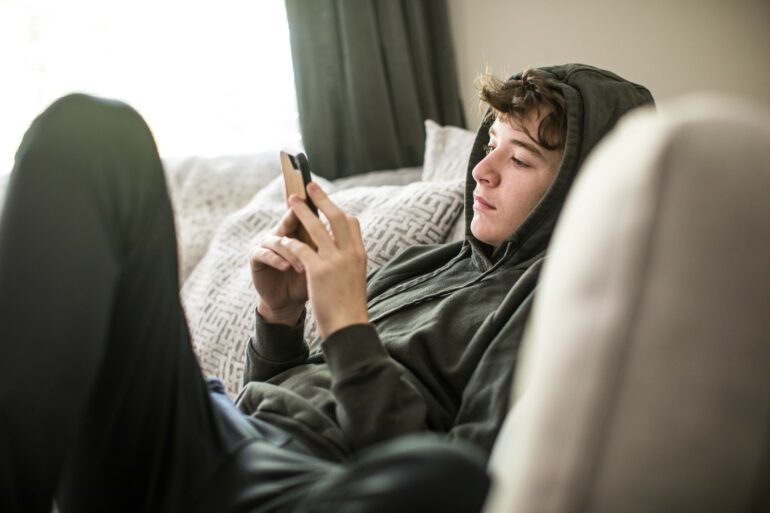
Curious Kids is a series for children of all ages. If you have a question you’d like an expert to answer, send it to [email protected].
How many hours does the average American spend on devices each year? – Maxwell P., age 10
Think about your favorite devices – your smartphone, laptop, tablet, computer or console – the things you use to play cool games, watch hilarious videos and connect and chat with friends.
Many young people spend a lot of free time looking at them. Turns out that teens spend an average of 8½ hours on screens per day, and tweens – that’s ages 8 to 12 – are not far behind, at 5½ hours daily.
Keep in mind those numbers are for only social media, gaming and texting. They do not include the time that kids used screens for schoolwork or homework.
What’s more, much of the time taken up by social media and texting is apparently not even enjoyable, much less productive. A 2017 study of teens ages 13 to 18 suggests they spend most of those hours on the phone in their bedroom, alone and distressed.
These lonely feelings correlate with the rise in the use of digital media. In 2022, 95% of teens had smartphones compared with only 23% in 2011. And 46% of today’s teens say they use the internet almost constantly, compared with 24% of teenagers who said the same in 2014 and 2015.
Our team of psychiatrists who treat young people with digital addiction have many patients who spend over 40 hours per week on screens – and some, up to 80 hours.
Think about it: If you spend “just” an average of 50 hours per week on devices from ages 13 to 18 – the total time you will spend on screens equates to more than 12 years of school!
The U.S. surgeon general says too much screen time can increase anxiety and depression in teens and tweens.
Find the right balance
All this is not to say that everything about devices is bad. In this digital age, people embark on exciting journeys through the screens of their devices. Sometimes, screens are the windows to a magical adventure.
But too much screen time can lead to problems. As human beings, we function best when we’re in a state of balance. That happens when we eat well, exercise regularly and get enough sleep.
But spending too much time using digital devices can cause changes in the way you think and behave. Many teens and tweens developed the “fear of missing out” – known as FOMO. And one study shows some people develop nomophobia, which is the fear of being without your phone, or feeling anxious when you can’t use it.
Moreover, digital addiction in high school may predict serious depression, anxiety and sleep disruption in college.
Rates of depression and anxiety are skyrocketing among college students. The fear of missing out is pervasive, resulting in sleep disruption; too many college students sleep with…



